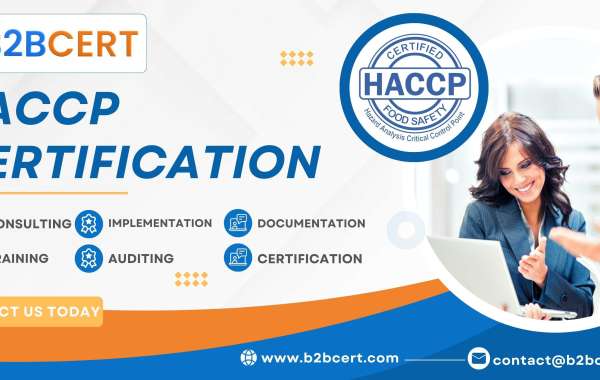In the realm of ensuring food safety and adhering to international standards, Hazard Analysis and Critical Control Points HACCP Certification in Jordan plays a pivotal role. For businesses in the food and beverage industry, navigating the intricacies of food safety regulations and meeting consumer expectations can present formidable challenges. However, by obtaining HACCP certification, organizations not only demonstrate their commitment to producing safe and high-quality food products but also gain numerous advantages in terms of marketability, consumer trust, and operational efficiency.
Benefits of HACCP Certification:
Ensuring Food Safety and Compliance: HACCP certification empowers businesses to implement systematic approaches to identify, evaluate, and control food safety hazards throughout the production process. By adhering to HACCP principles, organizations can ensure that their products meet the highest standards of safety and hygiene, complying with regulatory requirements and international best practices.
Enhancing Market Access and Competitiveness: HACCP Certification in Zimbabwe opens doors to expanded market opportunities by demonstrating a commitment to food safety and quality. Certified products are perceived as safer and more reliable by consumers, thereby gaining a competitive edge in both domestic and international markets. Moreover, many retailers and distributors prioritize sourcing products with HACCP certification, further enhancing marketability and sales potential.
Strengthening Brand Reputation and Consumer Trust: HACCP certification serves as a hallmark of a company's dedication to food safety and risk management. By obtaining certification, businesses signal transparency, integrity, and accountability in their operations, thereby enhancing brand reputation and fostering consumer trust. Certified products are associated with higher levels of quality and reliability, leading to increased customer loyalty and positive brand perception.
Improving Operational Efficiency and Risk Management: Implementing HACCP Certification in Nigeria enables organizations to streamline their production processes, minimize the risk of foodborne hazards, and mitigate potential disruptions. By proactively identifying and addressing critical control points, businesses can optimize resource utilization, reduce waste, and enhance overall operational efficiency. This proactive approach to risk management not only safeguards public health but also safeguards business interests and continuity.
Industries Empowered by HACCP Certification:
Food Manufacturing and Processing: HACCP certification is particularly vital for food manufacturers and processors, where the highest standards of food safety are paramount. By implementing HACCP systems, these businesses can systematically identify and control hazards at each stage of production, ensuring the safety and integrity of their products. Certification instills confidence among consumers and regulatory authorities, facilitating market access and growth opportunities.
Food Service and Catering: In the food service industry, HACCP Certification in Kuwait is essential for maintaining hygiene standards and preventing foodborne illnesses. Certified establishments, including restaurants, catering services, and institutional kitchens, demonstrate their commitment to food safety and customer well-being. Compliance with HACCP requirements not only protects consumers but also enhances the reputation and credibility of food service providers.
Retail and Distribution: Retailers and distributors play a crucial role in ensuring the integrity and safety of food products throughout the supply chain. By sourcing products from HACCP-certified suppliers, retailers can uphold their commitment to consumer safety and regulatory compliance. Moreover, certification provides assurance to consumers regarding the quality and safety of products available in retail outlets, thereby enhancing trust and brand loyalty.
Understanding the Costs of HACCP Certification:
While the cost of HACCP Certification in Chad varies depending on factors such as company size, complexity of operations, and certification body requirements, it typically includes expenses related to training, documentation, audits, and implementation of control measures. Despite the initial investment, the long-term benefits of certification, including improved market access, enhanced brand reputation, and reduced risk of food safety incidents, far outweigh the costs for businesses committed to ensuring food safety and quality.
Engaging HACCP Certification Consultants:
Businesses seeking HACCP Certification in Mumbai can benefit from engaging experienced consultants specializing in food safety and quality management systems. These consultants offer valuable expertise in developing and implementing HACCP plans, conducting risk assessments, and preparing for certification audits. By partnering with reputable consultancy firms, organizations can navigate the certification process efficiently, address any gaps in compliance, and achieve their objectives of enhancing food safety and consumer satisfaction.




